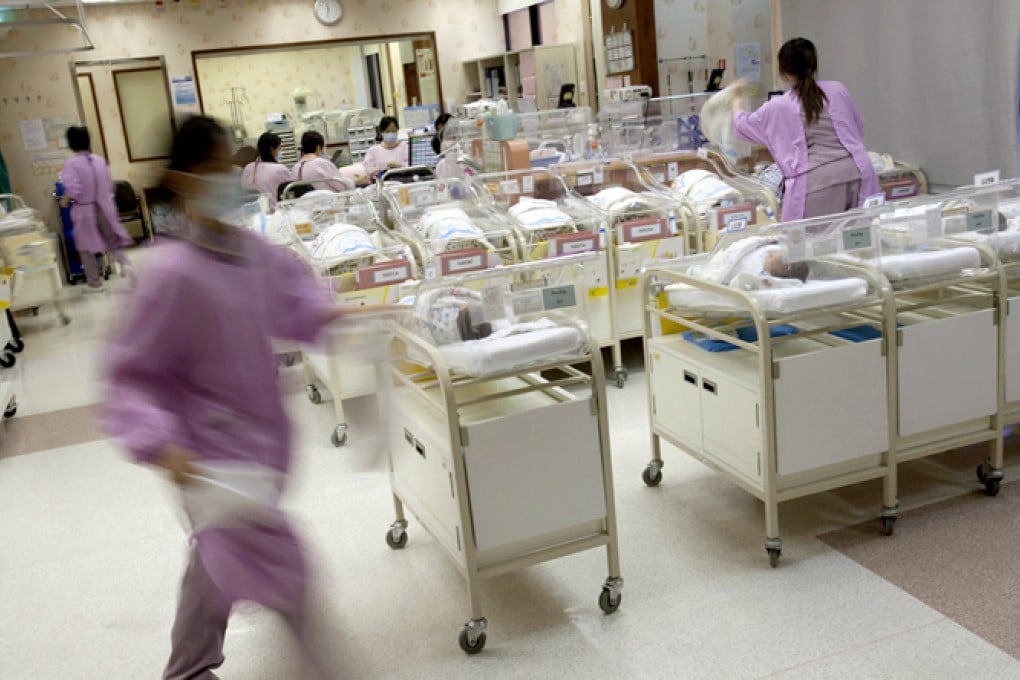Relax ban on mainland China mothers giving birth in Hong Kong
Demand for medical care has become so heavy the world over that no government can afford to pledge unlimited resources to serve the people.

Demand for medical care has become so heavy the world over that no government can afford to pledge unlimited resources to serve the people. Pressured by a tide of mainland mothers taking advantage of the city's lax rules to gain permanent residency for their newborns, the chief executive rightly imposed a zero birth quota for non-locals in public hospitals last year. The decision helped to ease cross-border tensions and the burden on public services.
After more than a year, the ban has proved a success, so much so that there is even spare capacity in obstetrics services. According to the Hospital Authority, maternity wards in the city's public hospitals can handle an extra 2,000 to 3,000 births a year. This gives rise to the question of whether the restriction should be eased to allow mainland wives of Hong Kong men to give birth here. Regrettably, a Hospital Authority subcommittee is not in favour of doing so, citing manpower shortages and an expected rise in local births in the coming year.
With cross-border relations under strain from an influx of mainland visitors, the issue cannot come at a more sensitive time. The birth quota was introduced because of the growing burden on public medical services. With the burden having eased, it makes sense to review the situation. This is further justified in light of the excess capacity.
Allowing mainland mothers married to local husbands to give birth here would be a prudent response. Currently, private hospitals are still allowed to receive bookings from such mothers. Before the ban, these mothers accounted for an annual 4,600 to 6,200 births in public and private hospitals. The impact would be small, compared to an annual 30,000-plus children, neither of whose parents were local, who were born here before the ban. There is also no abode issue involved, as children born to Hong Kong fathers can come here for family reunion regardless of their place of birth. This differs from couples who are both non-locals, who can only gain residency for their children by giving birth here.
There should be no question that Hong Kong mothers should have priority for maternity beds. But when there is spare capacity, there is no reason why Hong Kong men with mainland wives should not be allowed to see their children born in a local public hospital. The government should consider relaxing the ban, taking into account the longer term impact on medical services, child care and schooling.
